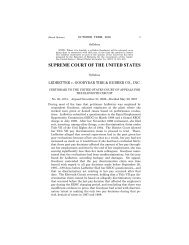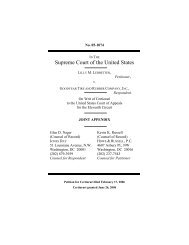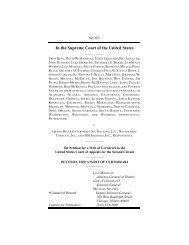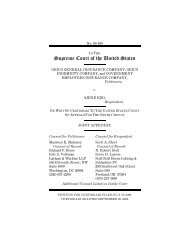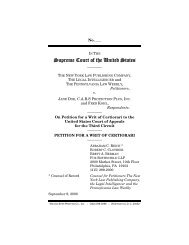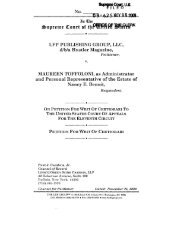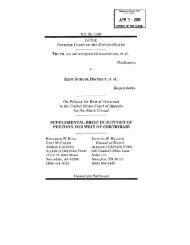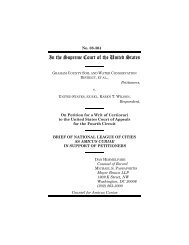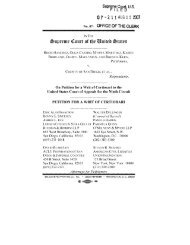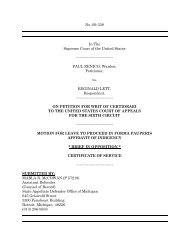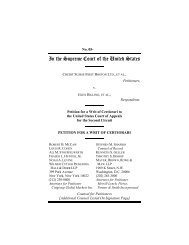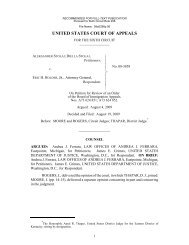Petition for certiorari - SCOTUSblog
Petition for certiorari - SCOTUSblog
Petition for certiorari - SCOTUSblog
Create successful ePaper yourself
Turn your PDF publications into a flip-book with our unique Google optimized e-Paper software.
23<br />
imonial because "the process [of their creation] is routine,<br />
non-adversarial, and made to ensure an accurate<br />
measurement"); Forte, 629 S.E.2d at 143 (same). This<br />
is nothing more than Roberts redux. Even if these<br />
courts’ assessment of the reliability of <strong>for</strong>ensic testing<br />
were correct, but see supra at 16-17, this Court expressly<br />
rejected such legal reasoning in Craw£ord’.<br />
"Dispensing with confrontation because testimony is<br />
obviously reliable is akin to dispensing with jury trial<br />
because a defendant is obviously guilty. This is not<br />
what the Sixth Amendment prescribes." 541 U.S. at<br />
62. Defendants have a right to insist that prosecutorial<br />
testimony be presented through the adversarial<br />
process, regardless of whether judges surmise that<br />
cross-examination would likely bear fruit.<br />
b. Nor does Craw<strong>for</strong>dfi reference to business<br />
records support deeming <strong>for</strong>ensic reports nontestimonial.<br />
The common law "shop book rule" exception<br />
<strong>for</strong> regularly kept business records, to which Craw£ord<br />
adverted, see 541 U.S. at 56, did not remotely encompass<br />
reports generated <strong>for</strong> prosecutorial use. See<br />
Palmer v. HolTman, 318 U.S. 109, 113-14 (1943)<br />
(explaining that records "calculated <strong>for</strong> use essentially<br />
in the court" or whose "primary utility is in litigating"<br />
fall outside of common law rule, and declining to<br />
expand federal exception to allow their admission);<br />
State v. Miller, 144 P.3d 1052, 1058-60 (Or. Ct. App.<br />
2006) (tracing history of business records exception<br />
and concluding that state crime laboratory report.s fall<br />
outside historical exception). Even as recently as the<br />
1970s, the drafters of the Federal Rules of Evidence<br />
declined to expand the "public records" exception in<br />
criminal, cases to include "matters observed by police<br />
officers and other law en<strong>for</strong>cement personnel" and



